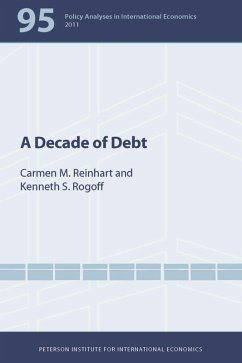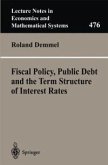This book presents evidence that public debts in the advanced economies have surged in recent years to levels not recorded since the end of World War II, surpassing the heights reached during the First World War and the Great Depression. At the same time, private debt levels, particularly those of financial institutions and households, are in uncharted territory and are (in varying degrees) a contingent liability of the public sector in many countries. Historically, high leverage episodes have been associated with slower economic growth and a higher incidence of default or, more generally, restructuring of public and private debts.
A more subtle form of debt restructuring in the guise of "financial repression" (which had its heyday during the tightly regulated Bretton Woods system) also importantly facilitated sharper and more rapid debt reduction than would have otherwise been the case from the late 1940s to the 1970s. It is conjectured here that the pressing needs of governments to reduce debt rollover risks and curb rising interest expenditures in light of the substantial debt overhang (combined with the widespread "official aversion" to explicit restructuring) are leading to a revival of financial repression-including more directed lending to government by captive domestic audiences (such as pension funds), explicit or implicit caps on interest rates, and tighter regulation on cross-border capital movements.
A more subtle form of debt restructuring in the guise of "financial repression" (which had its heyday during the tightly regulated Bretton Woods system) also importantly facilitated sharper and more rapid debt reduction than would have otherwise been the case from the late 1940s to the 1970s. It is conjectured here that the pressing needs of governments to reduce debt rollover risks and curb rising interest expenditures in light of the substantial debt overhang (combined with the widespread "official aversion" to explicit restructuring) are leading to a revival of financial repression-including more directed lending to government by captive domestic audiences (such as pension funds), explicit or implicit caps on interest rates, and tighter regulation on cross-border capital movements.
Dieser Download kann aus rechtlichen Gründen nur mit Rechnungsadresse in A, D ausgeliefert werden.









